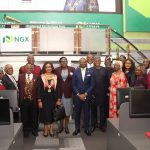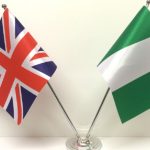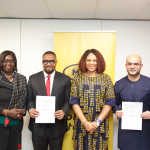World
Russia Making Further Inroads into Zimbabwe
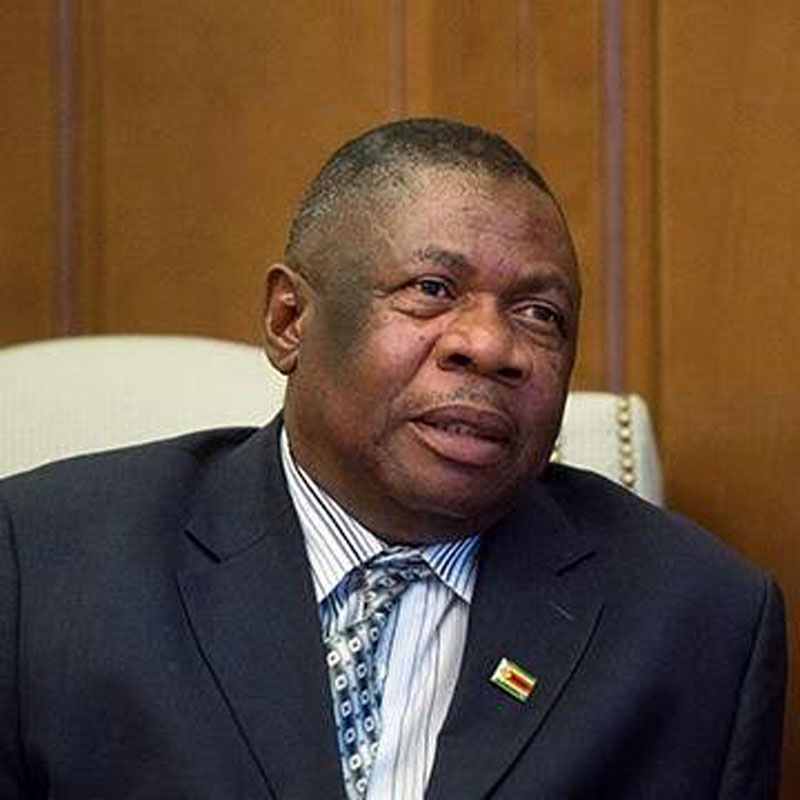
By Kester Kenn Klomegah
Russia maintains very friendly relations with Zimbabwe, thanks to ties which evolved during the struggle for independence. Since then, it has had a very strong mutual sympathy with and friendly feelings toward the southern African people, government and country.
One of the fora in which relations between the two countries are discussed is the Russia-Zimbabwe Intergovernmental Commission on Economic, Trade and Science and Technical Cooperation.
Following its recent meeting in Moscow in August, IDN’s Kester Kenn Klomegah conducted an exclusive interview with Brigadier General Mike Nicholas Sango, Zimbabwean Ambassador to the Russian Federation, to gauge the current climate of relations. The following are excerpts from the interview.
What were the key results of the 3rd meeting of the Joint Russia-Zimbabwean Economic Commission held in Moscow?
The primary objective of the Russia-Zimbabwean Joint Commission is to promote and strengthen existing bilateral relations. Cooperation in the areas of diplomacy, economic, social, educational and scientific fields are key in promoting bilateral relations.
During the 3rd session, the Commission reviewed progress in the areas of mining and was satisfied with progress on the joint Russian-Zimbabwean Darwendale platinum deposit development project being implemented by Great Dyke Investments and steps being undertaken by the Russian ALROSA group in developing the diamond industry in cooperation with the Zimbabwe Mining Development Corporation (ZMDC).
The Commission also noted with satisfaction the contribution by the Russian Federation in skills development of Zimbabwean personnel through Russian government scholarships to study in Russian institutions of higher learning.
The Commission was happy with the support offered by the Russian government in training of personnel in the defence and security sectors.
Cooperation in the areas of agriculture and energy was highlighted and a number of projects to be undertaken by Russian companies in Zimbabwe were discussed. Procedures to be met by potential investors were presented.
Your Minister for Foreign Affairs and International Trade, Sibusiso Moyo, participated in the meeting. What proposals were presented to the Russian side and what sectors or corporate projects included in the discussions?
Minister Sibusiso Moyo expressed his satisfaction with interest expressed by Russian companies in investing in agriculture, education, information technology, energy, tourism, transport and mining. Officials from the energy sector had discussions on renewable solar energy, in particular on the activities of ISP Geophysics and Inter Rao, both of which specialise in power generation. Discussions were also held with organic fertiliser companies and currently their products are undergoing field tests in Zimbabwe.
Russia says it will move from intentions to concrete actions. Do you think Russia is prepared to or will engage in those sectors to help overcome the current acute problems, especially rising unemployment and economic challenges, in Zimbabwe?
The Russian government has expressed its readiness to support the endeavours of African countries to develop their economies. Zimbabwe, like many post-colonial nations, is grappling with colonial legacies in terms of ownership of means of production. African resources continue to feed the economies of the West.
Sub-Saharan Africa is engaging countries like Russia with a view to extricating itself from colonial bondage. Unemployment, lack of industrialisation, poverty and disease are legacies of colonialism afflicting the sub-continent. Zimbabwe has been under illegal economic sanctions for the past twenty years and this is one of the major constraints undermining economic development.
Effort continue to re-engage with those that imposed those sanctions while engaging erstwhile friends to help kickstart the economy. We believe Russian companies stand to benefit from cooperating with Zimbabwe in many fields. The Zimbabwean government and companies are ready to work with their Russian counterparts.
Russia has had a number of agreements with Zimbabwe, as with many African countries, in the past that have still not been fully implemented. What are your comments about this?
Indeed, Russia has entered into agreements with Zimbabwe as with many other sub-Saharan African countries. In Zimbabwe, the agreements entered into are at various stages of implementation. It should also be noted that most are under Memorandum of Understanding or Agreement documents which are not contracts but a symbol of common good.
Under such documents, there are processes and procedures to be followed in order to consummate an agreement and subsequently a contract. At the same time, it should also be noted that an investor has to weigh up the possible risks involved and such processes determine if such projects can be implemented.
What would you say about the forthcoming first Russia-Africa summit [October 23-24] in Sochi? What are the expectations from African leaders? Do you really see this corporate event as the New Dawn?
This is the first time that the Russian Federation is hosting such a grand summit for African leaders and businesspeople. Russia has a long history of supporting the decolonisation of Africa. The summit offers an opportunity for reconnection between Russia and Africa. The world is undergoing fundamental challenges from global terrorism, climate change/crisis, unilateralism and so forth.
This will be a forum that can help shape the common agenda on how to collectively address these challenges. It is equally hoped that an opportunity will be created for Russian business to interface with African businesses. And African leaders have to focus on sustainable development projects, determine the role Russia could play in pushing these projects. Africa is the future and it would be a missed opportunity if Russian businesses do not take up this offer of partnership.
The African Union’s Agenda 2063 focuses on the industrialisation of Africa and will not easily give up exploitation of African resources. Russia has the technological competence to help Africa realise this dream.
This interview was first and originally published by Indepth News.
World
Russian-Nigerian Economic Diplomacy: Ajeokuta Symbolises Russia’s Remarkable Achievement in Nigeria
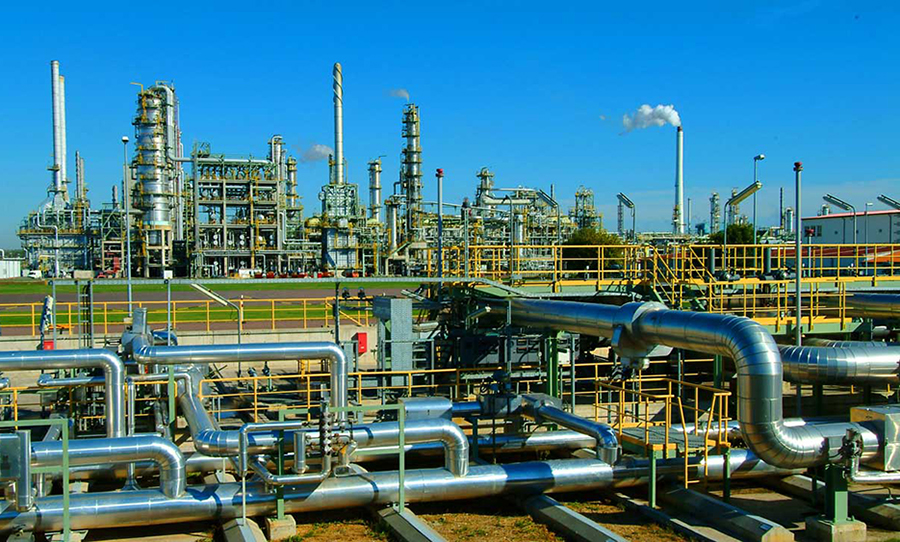
By Kestér Kenn Klomegâh
Over the past two decades, Russia’s economic influence in Africa—and specifically in Nigeria—has been limited, largely due to a lack of structured financial support from Russian policy banks and state-backed investment mechanisms. While Russian companies have demonstrated readiness to invest and compete with global players, they consistently cite insufficient government financial guarantees as a key constraint.
Unlike China, India, Japan, and the United States—which have provided billions in concessionary loans and credit lines to support African infrastructure, agriculture, manufacturing, and SMEs—Russia has struggled to translate diplomatic goodwill into substantial economic projects. For example, Nigeria’s trade with Russia accounts for barely 1% of total trade volume, while China and the U.S. dominate at over 15% and 10% respectively in the last decade. This disparity highlights the challenges Russia faces in converting agreements into actionable investment.
Lessons from Nigeria’s Past
The limited impact of Russian economic diplomacy echoes Nigeria’s own history of unfulfilled agreements during former President Olusegun Obasanjo’s administration. Over the past 20 years, ambitious energy, transport, and industrial initiatives signed with foreign partners—including Russia—often stalled or produced minimal results. In many cases, projects were approved in principle, but funding shortfalls, bureaucratic hurdles, and weak follow-through left them unimplemented. Nothing monumental emerged from these agreements, underscoring the importance of financial backing and sustained commitment.
China as a Model
Policy experts point to China’s systematic approach to African investments as a blueprint for Russia. Chinese state policy banks underwrite projects, de-risk investments, and provide finance often secured by African sovereign guarantees. This approach has enabled Chinese companies to execute large-scale infrastructure efficiently, expanding their presence across sectors while simultaneously investing in human capital.
Egyptian Professor Mohamed Chtatou at the International University of Rabat and Mohammed V University in Rabat, Morocco, argues: “Russia could replicate such mechanisms to ensure companies operate with financial backing and risk mitigation, rather than relying solely on bilateral agreements or political connections.”
Russia’s Current Footprint in Africa
Russia’s economic engagement in Africa is heavily tied to natural resources and military equipment. In Zimbabwe, platinum rights and diamond projects were exchanged for fuel or fighter jets. Nearly half of Russian arms exports to Africa are concentrated in countries like Nigeria, Zimbabwe, and Mozambique. Large-scale initiatives, such as the planned $10 billion nuclear plant in Zambia, have stalled due to a lack of Russian financial commitment, despite completed feasibility studies. Similar delays have affected nuclear projects in South Africa, Rwanda, and Egypt.
Federation Council Chairperson Valentina Matviyenko and Senator Igor Morozov have emphasized parliamentary diplomacy and the creation of new financial instruments, such as investment funds under the Russian Export Center, to provide structured support for businesses and enhance trade cooperation. These measures are designed to address historical gaps in financing and ensure that agreements lead to tangible outcomes.
Opportunities and Challenges
Analysts highlight a fundamental challenge: Russia’s limited incentives in Africa. While China invests to secure resources and export markets, Russia lacks comparable commercial drivers. Russian companies possess technological and industrial capabilities, but without sufficient financial support, large-scale projects remain aspirational rather than executable.
The historic Russia-Africa Summits in Sochi and in St. Petersburg explicitly indicate a renewed push to deepen engagement, particularly in the economic sectors. President Vladimir Putin has set a goal to raise Russia-Africa trade from $20 billion to $40 billion over the next few years. However, compared to Asian, European, and American investors, Russia still lags significantly. UNCTAD data shows that the top investors in Africa are the Netherlands, France, the UK, the United States, and China—countries that combine capital support with strategic deployment.
In Nigeria, agreements with Russian firms over energy and industrial projects have yielded little measurable progress. Over 20 years, major deals signed during Obasanjo’s administration and renewed under subsequent governments often stalled at the financing stage. The lesson is clear: political agreements alone are insufficient without structured investment and follow-through.
Strategic Recommendations
For Russia to expand its economic influence in Africa, analysts recommend:
- Structured financial support: Establishing state-backed credit lines, policy bank guarantees, and investment funds to reduce project risks.
- Incentive realignment: Identifying sectors where Russian expertise aligns with African needs, including energy, industrial technology, and infrastructure.
- Sustained implementation: Turning signed agreements into tangible projects with clear timelines and milestones, avoiding the pitfalls of unfulfilled past agreements.
With proper financial backing, Russia can leverage its technological capabilities to diversify beyond arms sales and resource-linked deals, enhancing trade, industrial, and technological cooperation across Africa.
Conclusion
Russia’s Africa strategy remains a work in progress. Nigeria’s experience with decades of agreements that failed to materialize underscores the importance of structured financial commitments and persistent follow-through. Without these, Russia risks remaining a peripheral player (virtual investor) while Arab States such as UAE, China, the United States, and other global powers consolidate their presence.
The potential is evident: Africa is a fast-growing market with vast natural resources, infrastructure needs, and a young, ambitious population. Russia’s challenge—and opportunity—is to match diplomatic efforts with financial strategy, turning political ties into lasting economic influence.
World
Afreximbank Warns African Governments On Deep Split in Global Commodities

By Adedapo Adesanya
Africa Export-Import Bank (Afreximbank) has urged African governments to lean into structural tailwinds, warning that the global commodity landscape has entered a new phase of deepening split.
In its November 2025 commodity bulletin, the bank noted that markets are no longer moving in unison; instead, some are powered by structural demand while others are weakening under oversupply, shifting consumption patterns and weather-related dynamics.
As a result of this bifurcation, the Cairo-based lender tasked policymakers on the continent to manage supply-chain vulnerabilities and diversify beyond the commodity-export model.
The report highlights that commodities linked to energy transition, infrastructure development and geopolitical realignments are gaining momentum.
For instance, natural gas has risen sharply from 2024 levels, supported by colder-season heating needs, export disruptions around the Red Sea and tightening global supply. Lithium continues to surge on strong demand from electric-vehicle and battery-storage sectors, with growth projections of up to 45 per cent in 2026. Aluminium is approaching multi-year highs amid strong construction and automotive activity and smelter-level power constraints, while soybeans are benefiting from sustained Chinese purchases and adverse weather concerns in South America.
Even crude oil, which accounts for Nigeria’s highest foreign exchange earnings, though still lower year-on-year, is stabilising around $60 per barrel as geopolitical supply risks, including drone attacks on Russian facilities, offset muted global demand.
In contrast, several commodities that recently experienced strong rallies are now softening.
The bank noted that cocoa prices are retreating from record highs as West African crop prospects improve and inventories recover. Palm oil markets face oversupply in Southeast Asia and subdued demand from India and China, pushing stocks to multi-year highs. Sugar is weakening under expectations of a nearly two-million-tonne global surplus for the 2025/26 season, while platinum and silver are seeing headwinds from weaker industrial demand, investor profit-taking and hawkish monetary signals.
For Africa, the bank stresses that the implications are clear. Countries aligned with energy-transition metals and infrastructure-linked commodities stand to benefit from more resilient long-term demand.
It urged those heavily exposed to softening agricultural markets to accelerate a shift into processing, value addition and product diversification.
The bulletin also called for stronger market-intelligence systems, improved intra-African trade connectivity, and investment in logistics and regulatory capacity, noting that Africa’s competitiveness will depend on how quickly governments adapt to the new two-speed global environment.
World
Aduna, Comviva to Accelerate Network APIs Monetization

By Modupe Gbadeyanka
A strategic partnership designed to accelerate worldwide enterprise adoption and monetisation of Network APIs has been entered into between Comviva and the global aggregator of standardised network APIs, Aduna.
The adoption would be done through Comviva’s flagship SaaS-based platform for programmable communications and network intelligence, NGAGE.ai.
The partnership combines Comviva’s NGAGE.ai platform and enterprise onboarding expertise with Aduna’s global operator consortium.
This unified approach provides enterprises with secure, scalable access to network intelligence while enabling telcos to monetise network capabilities efficiently.
The collaboration is further strengthened by Comviva’s proven leadership in the global digital payments and digital lending ecosystem— sectors that will be among the biggest adopters of Network APIs.
The NGAGE.ai platform is already active across 40+ countries, integrated with 100+ operators, and processing over 250 billion transactions annually for more than 7,000 enterprise customers. With its extensive global deployment, NGAGE.ai is positioned as one of the most scalable and trusted platforms for API-led network intelligence adoption.
“As enterprises accelerate their shift toward real-time, intelligence-driven operations, Network APIs will become foundational to digital transformation. With NGAGE.ai and Aduna’s global ecosystem, we are creating a unified and scalable pathway for enterprises to adopt programmable communications at speed and at scale.
“This partnership strengthens our commitment to helping telcos monetise network intelligence while enabling enterprises to build differentiated, secure, and future-ready digital experiences,” the chief executive of Comviva, Mr Rajesh Chandiramani, stated.
Also, the chief executive of Aduna, Mr Anthony Bartolo, noted that, “The next wave of enterprise innovation will be powered by seamless access to network intelligence.
“By integrating Comviva’s NGAGE.ai platform with Aduna’s global federation of operators, we are enabling enterprises to innovate consistently across markets with standardised, high-performance Network APIs.
“This collaboration enhances the value chain for operators and gives enterprises the confidence and agility needed to launch new services, reduce fraud, and deliver more trustworthy customer experiences worldwide.”
-

 Feature/OPED6 years ago
Feature/OPED6 years agoDavos was Different this year
-
Travel/Tourism9 years ago
Lagos Seals Western Lodge Hotel In Ikorodu
-

 Showbiz3 years ago
Showbiz3 years agoEstranged Lover Releases Videos of Empress Njamah Bathing
-

 Banking7 years ago
Banking7 years agoSort Codes of GTBank Branches in Nigeria
-

 Economy3 years ago
Economy3 years agoSubsidy Removal: CNG at N130 Per Litre Cheaper Than Petrol—IPMAN
-

 Banking3 years ago
Banking3 years agoFirst Bank Announces Planned Downtime
-

 Banking3 years ago
Banking3 years agoSort Codes of UBA Branches in Nigeria
-

 Sports3 years ago
Sports3 years agoHighest Paid Nigerian Footballer – How Much Do Nigerian Footballers Earn






